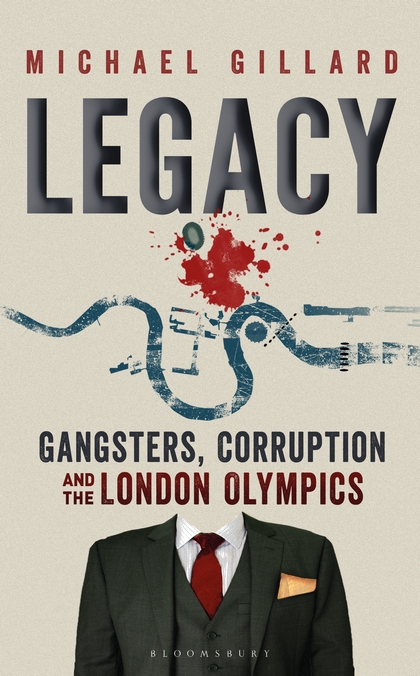I confess I do not come to this post as a passive observer. When reviewing Michael Gillard’s new book Legacy I should declare an interest and point out that the author is a friend and colleague who I have had the honour to work with. Nevertheless, it is exactly that position which gives me some authority to declare how much soul-searching Michael went through to get this mighty tome to publication; not least in terms of his own safety. The Osman warnings he has received are a testament to this.

Legacy is not just a stunning tale. It is also a forensic analysis of how the inertia of the UK’s most powerful police force coupled with a failure to recognise its own corrupt elements, led an organised crime group – parked on its own doorstep – to flourish. In time internal Metropolitan Police reports would document that David Hunt, a Canning Town gangster, had become “too big” for them to take down.
It was not always this way. Through the narrative, we meet a police officer and his dedicated team who did their best to bring David Hunt and his cohorts to book. Unfortunately for DCI David McKelvey, or “Mac” as he is known, he was not just battling the gangsters but his own employers. We learn that, while investigating and successfully collecting prima facie evidence of Hunt’s crimes, Mac is subjected to the kind of scrutiny and pressure from the Met’s Professional Standards Unit – the Ghost Squad – usually reserved for bent coppers. The result was McKelvey retired almost a mentally broken soul, though he has now pieced his life back together. The cases lined up against David Hunt were effectively “collapsed”. Hunt’s power and wealth grew and he remains a free man to this day.
What changed the landscape was Michael Gillard’s journalism for the Sunday Times. Through a series of stories, he spoke out for the victims of David Hunt’s crimes, exposing the reality of Hunt’s criminal endeavours to the public and eventually the full glare of a courtroom. As Michael’s articles began to damage David Hunt’s business interests the gangster became angrier culminating in him launching a libel action against The Sunday Times. It did not end well for Hunt resulting in the presiding judge declaring that Hunt was indeed head of an organised crime group.
It was after the libel action that my path crossed Michael’s when I wrote a story for The Independent revealing a £1 million loan which West Ham United owner David Sullivan had given to David Hunt at the end of the court case. There followed collaborations on a clutch of stories regarding the finances of Hunt and the stench of corruption which surrounded the man.

However, Legacy goes much further than detailing the rise of an organised crime boss. Gillard digs deep into the backdrop – the battle for the spoils of land being developed for the London Olympics and a factual nod to The Long Good Friday scripted by Barrie Keeffe, who gives Legacy his own seal of approval. Legacy, says Keeffe, “adds credence to the old adage that truth can be stranger than fiction”. The chapters on the stench of corruption emanating from the local authorities dealing with the London games are particularly revealing.
Legacy is an important book, which like one of Michael Gillard’s previous publications The Untouchables, sets a high bar for investigative journalism. More importantly, we should reflect that journalists carrying out this kind of work are facing threat levels never seen before in the UK. We don’t do this for the money for sure, the recompense for putting ourselves in the firing line is paltry. We do this work because we feel passionate about exposing the wrongs we encounter and to give a voice to those who otherwise would not have not been heard. Long may that continue. So a book well worth investing a few pounds in. But don’t take my word for it, grab a copy of Legacy this weekend and see for yourselves.
